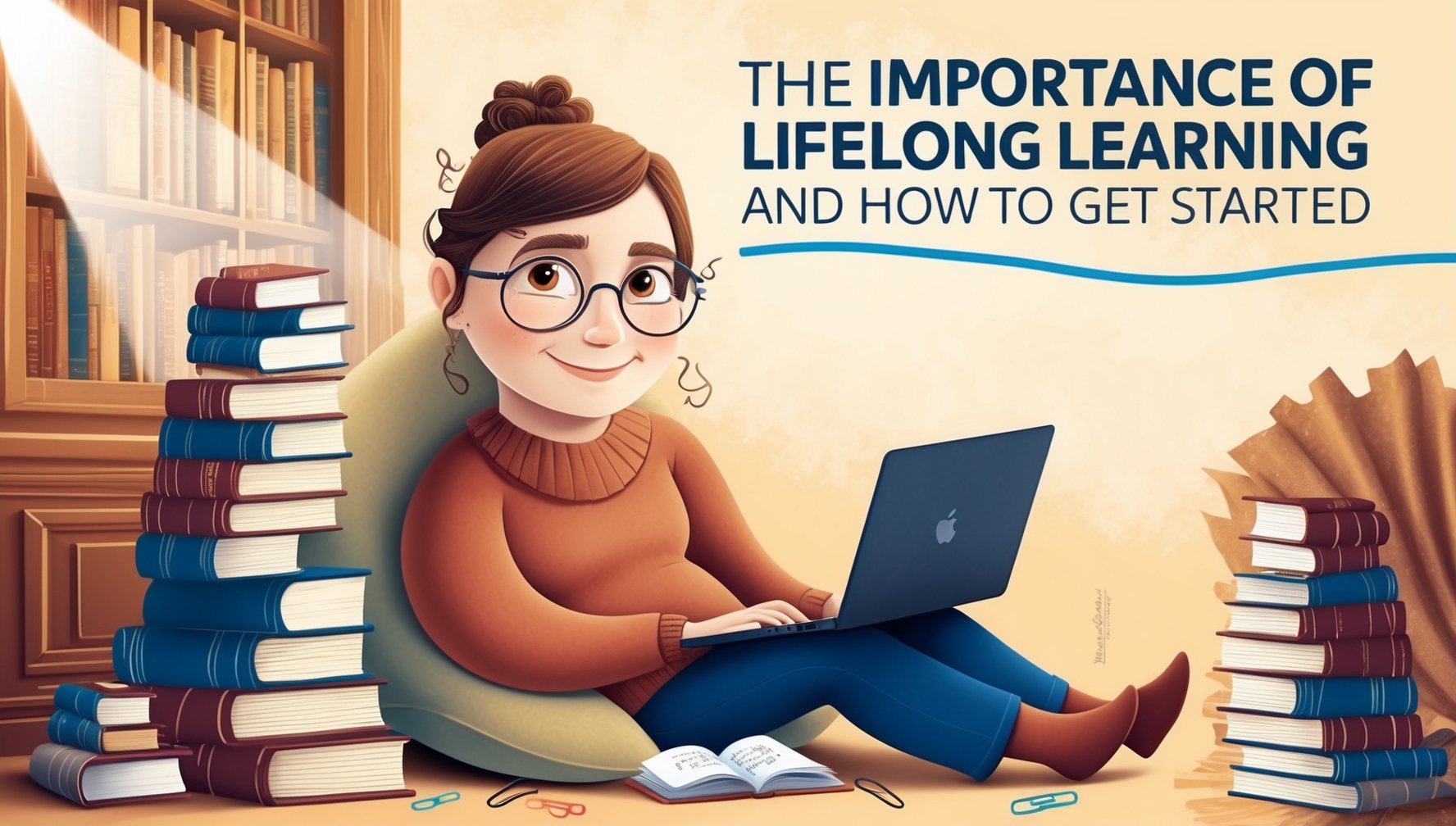Lifelong learning is the continuous, voluntary, and self-motivated pursuit of knowledge for personal or professional development. In today’s rapidly changing world, the importance of lifelong learning cannot be overstated. It not only enhances individual skills and knowledge but also fosters adaptability and resilience in the face of change. This article explores the significance of lifelong learning and provides practical steps to get started on your learning journey.
Why Lifelong Learning is Important
- Adaptability to Change: The modern workforce is constantly evolving due to technological advancements and shifting job markets. Lifelong learning equips individuals with the skills necessary to adapt to new challenges, ensuring they remain relevant and competitive in their fields. As industries change, continuous education helps professionals stay updated with the latest trends and innovations.
- Career Advancement: Engaging in lifelong learning can significantly enhance employability and career prospects. Employers value employees who demonstrate a commitment to personal growth and skill development. By acquiring new qualifications or certifications, individuals can position themselves for promotions, career changes, and new job opportunities.
- Personal Growth and Fulfillment: Lifelong learning is not just about career advancement; it also contributes to personal satisfaction and fulfillment. Exploring new subjects, hobbies, or skills can lead to a more enriched and meaningful life. Whether it’s learning a new language, taking up a musical instrument, or studying a new field, the pursuit of knowledge can enhance overall well-being.
- Cognitive Health: Engaging in continuous learning activities has been shown to promote cognitive health and prevent age-related decline. Studies suggest that stimulating the mind through learning can improve memory, critical thinking, and problem-solving skills, keeping the brain active and healthy.
- Social Connections: Lifelong learning often involves joining classes, workshops, or community groups, which can foster social interactions and connections. Building relationships with like-minded individuals can enhance motivation and create a supportive learning environment.
How to Get Started with Lifelong Learning
- Set Clear Goals: Begin by identifying what you want to learn and why. Setting specific, achievable goals can help guide your learning journey. Whether you aim to advance in your career, explore a new hobby, or simply satisfy your curiosity, having clear objectives will keep you focused.
- Explore Learning Opportunities: There are numerous avenues for lifelong learning, including online courses, workshops, seminars, and community classes. Platforms like Coursera, Udemy, and Khan Academy offer a wide range of subjects, often at little to no cost. Additionally, local community colleges and libraries may provide valuable resources and courses.
- Create a Learning Schedule: Incorporate learning into your daily or weekly routine. Setting aside dedicated time for learning can help you stay committed and make consistent progress. Treat this time as you would any important appointment.
- Join Learning Communities: Engage with others who share your interests by joining study groups, online forums, or local clubs. Collaborating with peers can enhance motivation, provide support, and create opportunities for discussion and feedback, helping to develop effective communication skills.
- Utilize Technology: Take advantage of technology to facilitate your learning. Use apps, podcasts, and online resources to access information and courses conveniently. Many educational institutions and organizations offer free webinars and online lectures that can be valuable learning tools.
- Stay Curious and Open-Minded: Embrace a growth mindset by remaining open to new experiences and perspectives. Approach learning with curiosity and enthusiasm, and don’t hesitate to explore topics outside your comfort zone.
- Reflect on Your Learning: Regularly assess your progress and reflect on what you’ve learned. Consider keeping a learning journal to document your experiences, insights, and areas for improvement. Reflection can deepen your understanding and reinforce your commitment to lifelong learning.
Conclusion
Lifelong learning is essential for personal and professional growth in today’s fast-paced world. By embracing the importance of continuous education, individuals can adapt to change, enhance their careers, and enrich their lives. Starting your lifelong learning journey may seem daunting, but with clear goals, a commitment to exploration, and a supportive community, you can cultivate a fulfilling and rewarding learning experience.
